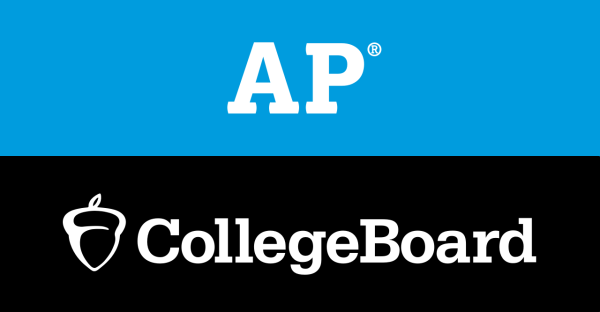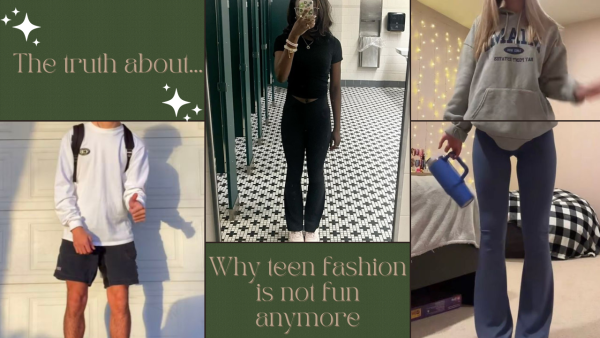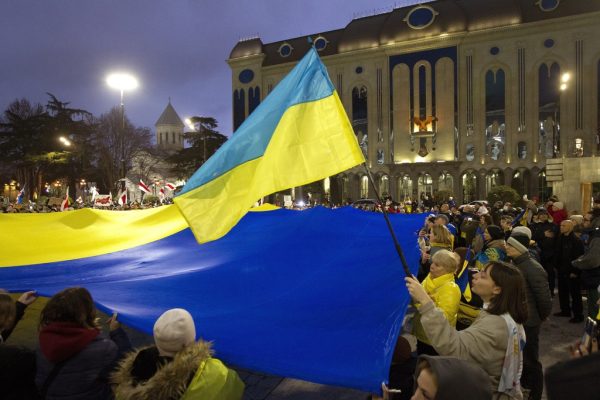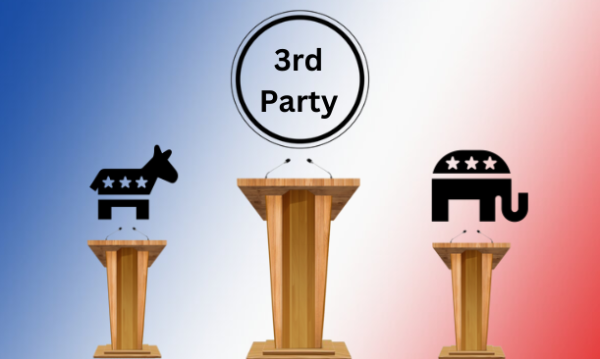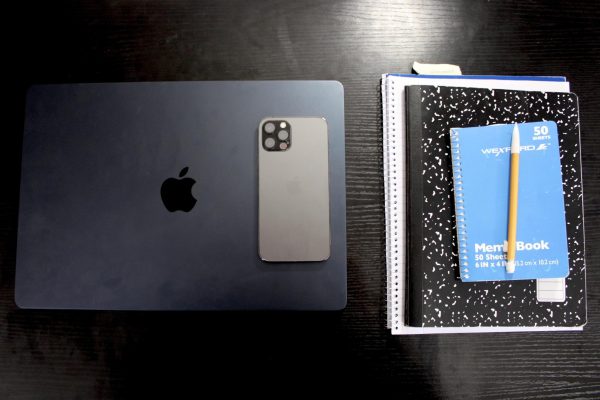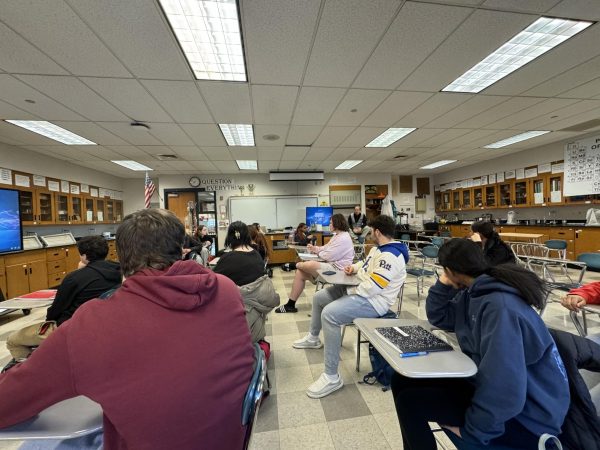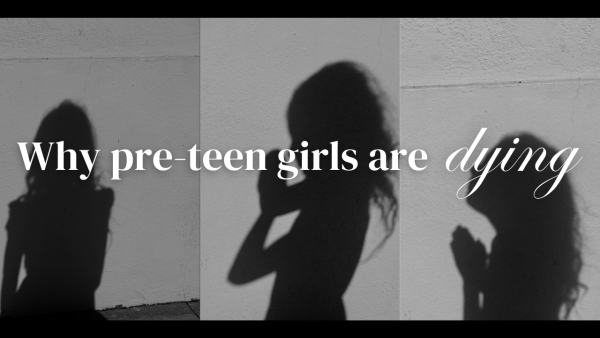Opinion: Pro athletes injure themselves and team by refusing vaccine
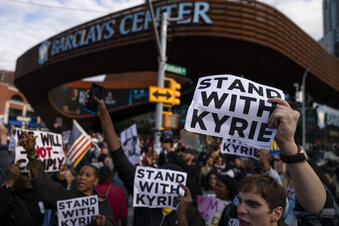
FILE – Protesters rallying against COVID-19 vaccination mandates and in support of basketball player Kyrie Irving gather in the street outside the Barclays Center before an NBA basketball game between the Brooklyn Nets and the Charlotte Hornets, Sunday, Oct. 24, 2021, in New York. From the NBA’s Kyrie Irving missing the first months of the Brooklyn Nets’ season before making a partial return, to the NFL’s Aaron Rodgers going from revered veteran to polarizing figure, to a diplomatic standoff over tennis star Novak Djokovic’s exemption to play in the Australian Open, sports figures have found themselves cheered and jeered as the most famous faces in fights over vaccine mandates and refusals. (AP Photo/John Minchillo, File)
Opinions expressed in the Op/Ed section of The Knight Crier are not necessarily reflective of the views of the entire staff of the KC.
Each individual has the right to make a personal decision about receiving the COVID vaccine. However, when that individual is also a professional athlete, not receiving the vaccine, and therefore not being able to participate in their sport, can have significant consequences that can also impact their fellow teammates.
Professional Serbian tennis player Novak Djokovic has become a highly decorated player throughout the course of his career, but that success seemingly came to a halt earlier last month due to the world No. 1’s vaccination status. Djokovic was barred from having the opportunity to participate in this year’s Australian Open, as the unvaccinated tennis star was subsequently deported. Potentially, if Djokovic had participated and won, he would have acquired his tenth Australian title, secured his spot as the remaining three-year champion at the AO, and broken the tie between himself, Rafael Nadal, and Roger Federer for holding 20 Grand Slam men’s single titles before the start of the AO. As of now, however, Nadal broke that three-way tie last weekend when he defeated Daniil Medvedev in the championship, obtaining his 21st Grand Slam title.
If Djokovic continues not to compete due to being unvaccinated, his world ranking will drop as Nadal’s total number of Grand Slam titles potentially rises. Playing against young and prodigious players such as Medvedev, Stefanos Tsitsipas, Denis Shapovalov, Matteo Berrettini, and Alexander Zverev will be quite a challenge for Djokovic, should he eventually return to the court. Currently, he is at a disadvantage with only himself to blame, and getting the vaccine sooner rather than later would put him back into action and possibly give him the chance to prove himself as the greatest of all time.
Green Bay Packers’ quarterback Aaron Rodgers stated that he was “immunized” during a preseason press conference. It was later revealed that he had never received a COVID-19 vaccine. After discovering this news, The NFL fined the Green Bay Packers $300,000 and Rodgers $14,650 for violating the league’s COVID-19 policies.
Considering the annual salary of Rodgers is $33.5 million, paying a $14k fine barely dented the quarterback’s funds. His team paid the price for his irresponsible decision to lie about being immunized. Rodgers was suspended from playing in the Packers’ Week 9 game against the Kansas City Chiefs, which turned out to be detrimental for Green Bay, as quarterback Jordan Love finished the game with only 19-of-34 completed passes in their 13-7 loss. If Rodgers truly believed not receiving the vaccine would not limit him in his career as a pro football player or not possibly hurt his fellow teammates, then he had no reason to lie when asked about it.
Brooklyn Nets’ point and shooting guard Kyrie Irving missed 41 out of 51 of Brooklyn’s games this season. Due to New York’s vaccine mandate, the Nets’ player has not been able to play any home games so far. Irving has stated that he is ‘just staying rooted’ in his decision to remain unvaccinated against COVID-19.
With Brooklyn being ranked 6th in the Eastern Conference this season, who knows if their ranking could have been higher than just above average if Irving had played in every game thus far. The absence of forward Kevin Durant has clearly taken a toll on Brooklyn in recent games, and with Irving in and out of the lineup, a steady win streak is almost unattainable. Without Irving being a permanent player in the lineup each game, it is unknown if their 29-23 record will stay a winning record.
When making the decision of whether or not to receive a COVID-19 vaccine, it is clear that in the instance of Rodgers and Irving, neither athlete recognized the fact that their choice would affect the other athletes on their teams. A team is a cohesive unit that works together, leans on each other, and supports one another. In choosing not to receive the vaccine, each athlete is making a detrimental decision to themselves, their teammates, and, most importantly, their careers.





